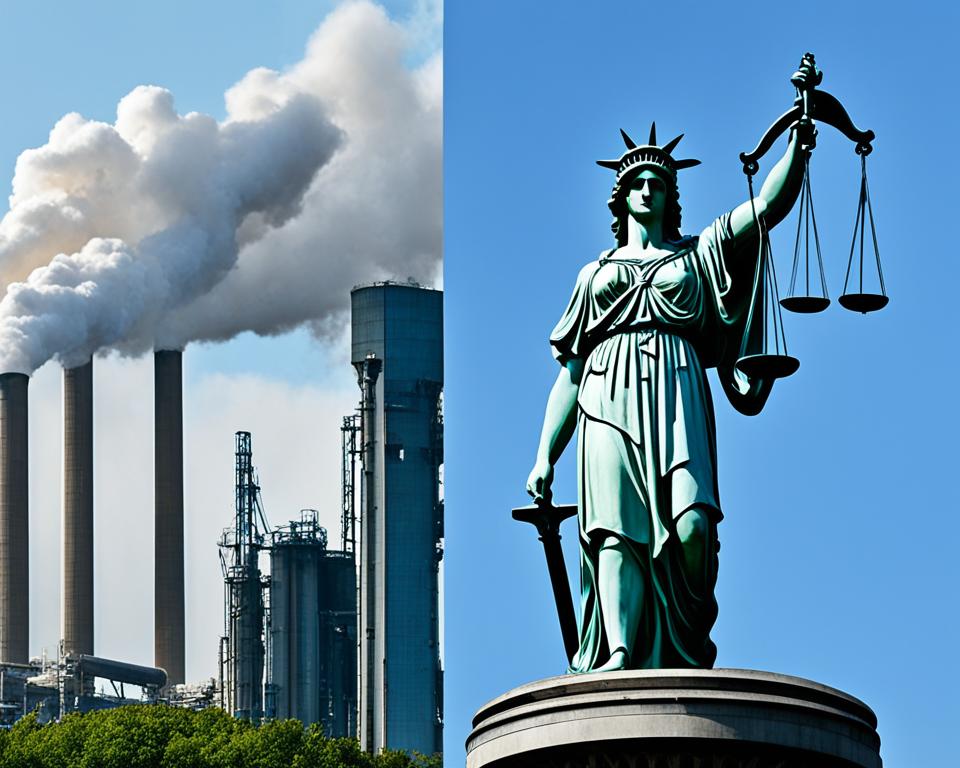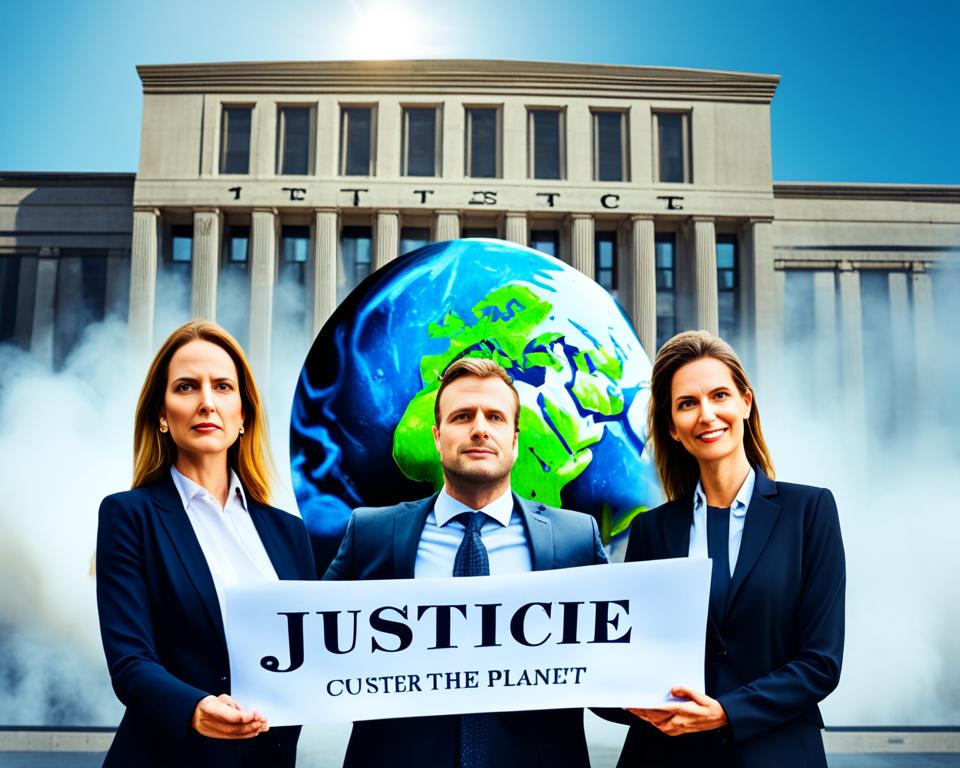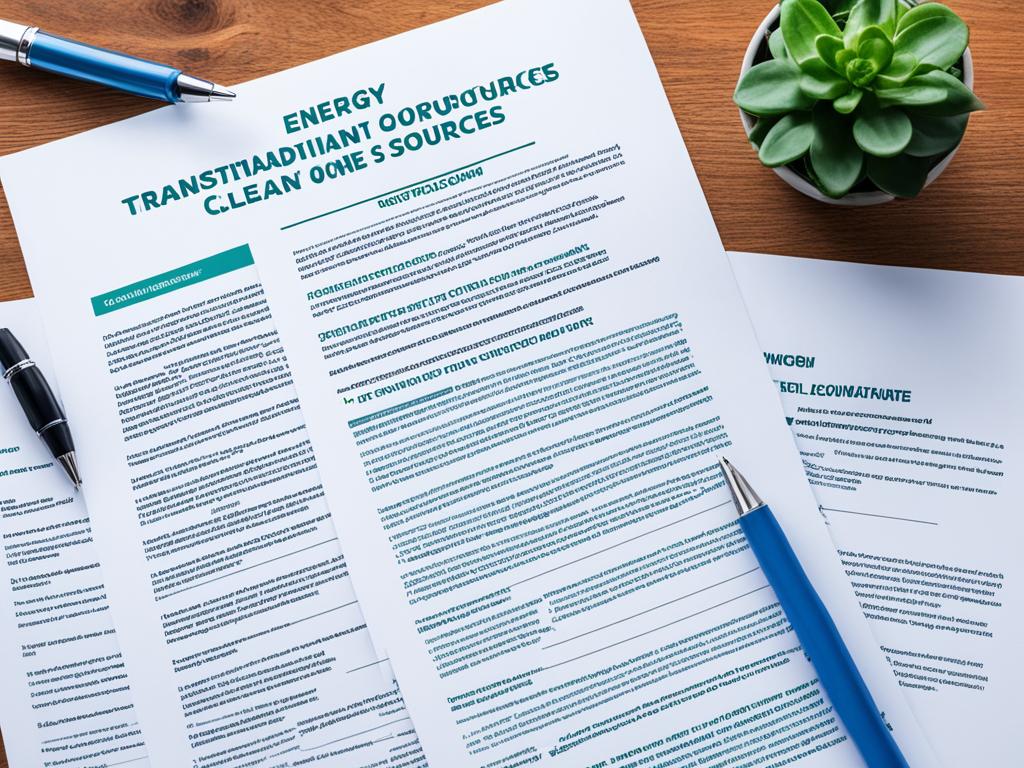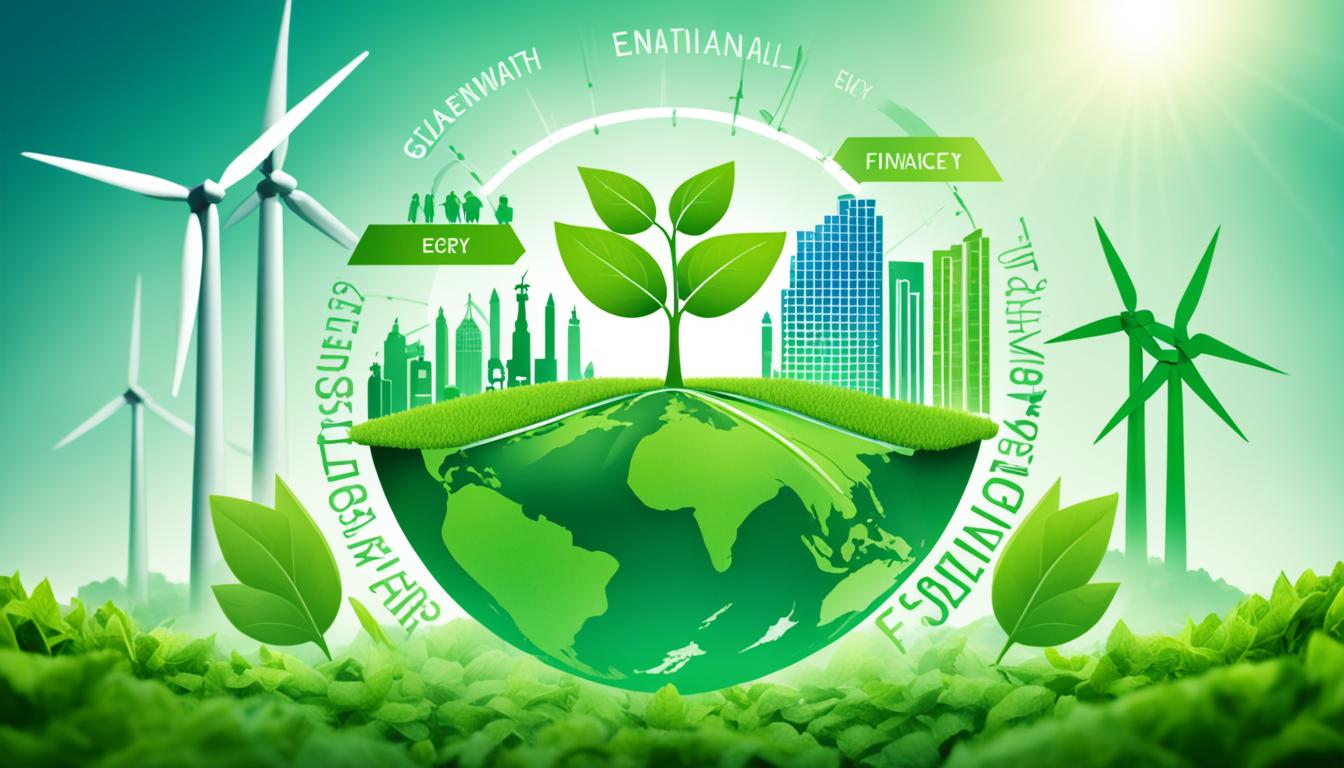Hello, readers! In today’s article, I will discuss the crucial role that international environmental law plays in addressing the pressing issue of climate change. As we confront the challenges posed by climate change, it has become increasingly evident that legal solutions are essential for mitigating environmental issues and safeguarding the future of our planet.
International environmental law provides a framework for collaboration and cooperation among nations to tackle climate change collectively. It seeks to establish legal obligations and guidelines for environmental protection, promoting sustainable practices and ensuring that countries work towards a more environmentally responsible future.
As we delve into the intricacies of international environmental law and its impact on climate change, we will explore how legal frameworks and agreements aid in overcoming environmental challenges and fostering global cooperation. By understanding the role of international environmental law, we can appreciate the importance of legal solutions in developing a sustainable future.
Key Takeaways:
- International environmental law plays a crucial role in addressing climate change.
- Legal solutions are essential for mitigating environmental issues and safeguarding the planet.
- International environmental law promotes collaboration and cooperation among nations.
- Legal frameworks and agreements aid in overcoming environmental challenges.
- Understanding the role of international environmental law is key to developing a sustainable future.
Understanding International Environmental Law and Climate Change
In today’s global context, addressing climate change requires a comprehensive framework that goes beyond national borders. International environmental law plays a vital role in providing legal solutions to mitigate environmental issues and promote sustainability. In this section, we will explore the key components of international environmental law and its relationship to climate change.
Eco-Friendly Legal Services: A Primer
Eco-friendly legal services encompass a range of legal practices that prioritize environmental sustainability. These services focus on assisting businesses, organizations, and individuals in adopting and implementing environmentally friendly practices, ensuring compliance with environmental regulations, and promoting eco-friendly policies. By seeking eco-friendly legal services, entities can navigate complex legal requirements while advancing their environmental goals.
Global Legal Frameworks for Environmental Protection
The protection of the environment requires a coordinated effort on a global scale. Legal frameworks and agreements have been established to address environmental challenges, providing a unified approach to environmental protection. These frameworks encompass international treaties, conventions, and agreements that aim to harmonize environmental standards and promote sustainable development. By establishing global legal frameworks, countries can collaborate in addressing shared environmental concerns and work towards a more sustainable future.
The Paris Agreement: A Case Study in International Cooperation
The Paris Agreement is a landmark international treaty adopted in 2015 as a response to the urgent need to combat climate change. It aims to limit global warming to well below 2 degrees Celsius above pre-industrial levels and to pursue efforts to limit the temperature increase to 1.5 degrees Celsius. The Paris Agreement emphasizes the importance of international cooperation in achieving these goals and outlines obligations for both developed and developing countries to reduce greenhouse gas emissions, enhance adaptation measures, and provide financial support for climate change mitigation and adaptation in developing nations. By examining the Paris Agreement as a case study, we can understand the significance of international cooperation and the role of legal frameworks in addressing the global challenge of climate change.
A beautiful sunset over wind turbines, symbolizing the importance of international environmental law and renewable energy in addressing climate change.
Historical Development of Environmental Law Firms
In this section, we will trace the historical development of environmental law firms and how their focus has evolved from conservation efforts to climate advocacy. Environmental law firms have played a crucial role in addressing environmental challenges through legal means, adapting their expertise to meet the evolving needs of our planet.
From Conservation to Climate Advocacy: The Evolution of Legal Expertise
Over the years, environmental law firms have shifted their focus from traditional conservation efforts to proactive climate advocacy. Recognizing the urgent need to combat climate change, these firms have embraced a more comprehensive approach to tackle environmental issues.
“As environmental awareness increased, it became evident that conservation alone would not be enough to address the complex challenges posed by climate change. Environmental law firms have embraced a broader mandate, actively working towards sustainable solutions and advocating for stronger environmental regulations.”
This evolution in legal expertise has been driven by the growing recognition of the interconnectedness between environmental conservation, human well-being, and the future of our planet. By expanding their areas of focus, environmental law firms have become instrumental in shaping policies, guiding corporations, and safeguarding the environment for future generations.
Pioneering Environmental Litigation Services
Environmental law firms have also played a pioneering role in the development of environmental litigation services. Through strategic legal action, these firms have held polluters accountable for their actions and compelled them to adopt more sustainable practices.

The image above highlights the dedication and passion of environmental law firms in seeking justice for environmental damages and advocating for a more sustainable future. With their legal expertise, these firms have made significant strides in addressing environmental challenges through litigation and legal interventions.
Impact of Sustainable Legal Practices on Global Policies
In today’s world, the need for sustainable legal practices has become crucial in shaping global policies and environmental regulations. Organizations and governments around the world are recognizing the importance of sustainable development and the role that legal frameworks play in achieving it. By prioritizing sustainability in their legal practices, they can contribute to the formulation and implementation of global policies that promote environmental protection and address the challenges posed by climate change.
Sustainable legal practices involve integrating environmental considerations into legal strategies, advocating for renewable energy sources, promoting responsible resource management, and supporting initiatives that mitigate the adverse effects of climate change. These practices help establish a legal framework that encourages and incentivizes sustainable behavior, both at the individual and organizational levels.
By adopting sustainable legal practices, organizations can influence global policies in various ways:
- Encouraging Environmental Regulations: Organizations that prioritize sustainability in their legal practices can advocate for the development and implementation of robust environmental regulations. By working closely with policymakers and participating in international forums, they can contribute to the creation of policies that address key environmental issues such as greenhouse gas emissions, deforestation, and waste management.
- Influencing International Agreements: Sustainable legal practices can have a significant impact on international agreements aimed at addressing global challenges like climate change. Organizations that embrace sustainability in their legal strategies can play a crucial role in shaping negotiations and ensuring the inclusion of provisions that promote environmental protection and the transition to a low-carbon economy. The Paris Agreement, for example, was a milestone achievement driven by the collective efforts of organizations, governments, and legal experts committed to sustainable practices.
- Facilitating Compliance with Environmental Obligations: Sustainable legal practices help organizations meet their environmental obligations effectively. By integrating sustainability into their legal strategies, organizations can ensure compliance with environmental regulations, minimize their ecological footprint, and reduce the risk of legal penalties and reputational harm. Compliance with environmental obligations is essential for organizations operating in a globalized economy, as it enhances their credibility and fosters trust among stakeholders.
The impact of sustainable legal practices on global policies extends beyond environmental regulations. It also encompasses social and economic aspects, as sustainable development requires a holistic approach that considers the interconnectedness of environmental, social, and economic systems.
In conclusion, sustainable legal practices have a profound influence on global policies and environmental regulations. By prioritizing sustainability in their legal strategies, organizations can actively contribute to the development and implementation of policies that address climate change, promote responsible resource management, and foster sustainable development. As the world faces pressing environmental challenges, sustainable legal practices play a vital role in shaping a better and more sustainable future for all.
Challenges in Enforcing International Environmental Compliance
In order to effectively address global environmental issues, international environmental compliance plays a crucial role. However, enforcing compliance with international environmental regulations poses significant challenges. In this section, we will explore the difficulties associated with ensuring international environmental compliance and maintaining the integrity of environmental regulations.
Identifying Loopholes in Existing Environmental Regulations
One of the main challenges in enforcing international environmental compliance is the presence of loopholes in existing regulations. These loopholes provide opportunities for individuals, corporations, or countries to evade their environmental responsibilities. Identifying these loopholes is essential for strengthening environmental regulations and closing any gaps that may undermine the effectiveness of international environmental law.
Enforcement Mechanisms: The Achilles’ Heel of International Law
Enforcement mechanisms are the backbone of international environmental law. They provide the means to ensure compliance with environmental regulations and hold accountable those who violate them. However, enforcement mechanisms can be limited in their effectiveness. In many cases, there is a lack of resources, expertise, and coordination among nations to effectively enforce international environmental compliance. This weakens the overall enforcement of environmental regulations and hampers the achievement of sustainable development goals.

Challenges in Enforcing International Environmental Compliance
| Challenge | Description |
|---|---|
| Loopholes in regulations | Identifying and addressing gaps in existing environmental regulations to prevent non-compliance. |
| Limited enforcement mechanisms | Insufficient resources, expertise, and coordination among nations in enforcing international environmental compliance. |
Legal Solutions for Environmental Issues
In the face of pressing environmental issues, legal solutions play a vital role in addressing and mitigating the challenges we face. From climate change to pollution, legal frameworks and strategies are necessary to protect the environment and ensure a sustainable future for generations to come.
Green Business Law as an Answer to Climate Threats
Green business law is a crucial element in addressing climate threats and promoting sustainable practices. By integrating environmental considerations into corporate legal frameworks, green business law drives change by encouraging businesses to adopt eco-friendly practices, reduce carbon emissions, and embrace renewable energy sources. It emphasizes the importance of sustainability, accountability, and responsibility in corporate decision-making, paving the way for a greener and more environmentally conscious business landscape.
Eco-Friendly Legal Advice in Policy Formation
When it comes to formulating effective environmental policies, eco-friendly legal advice is invaluable. Environmental lawyers who specialize in providing eco-friendly legal advice help policymakers navigate the complexities of environmental regulations, ensuring that policies are not only legally sound but also aligned with sustainable practices. This advice helps shape policies that prioritize environmental protection, resource conservation, and the well-being of communities, promoting a harmonious relationship between economic development and ecological sustainability.
Innovative Environmental Compliance Consulting Strategies
Environmental compliance consulting plays a significant role in helping businesses and organizations meet regulatory requirements while minimizing their environmental impact. Through innovative strategies, such as environmental audits, impact assessments, and sustainability planning, environmental compliance consultants provide guidance on how to achieve and maintain compliance with environmental regulations. By tailoring their approach to the unique needs of each client, these consultants enhance environmental performance, reduce risks, and promote the adoption of sustainable practices across various sectors.
By harnessing the power of green business law, eco-friendly legal advice, and innovative environmental compliance consulting strategies, we can pave the way for a more sustainable and environmentally conscious future. Through legal solutions, we can address environmental issues, drive positive change, and foster a greener, more sustainable world.
The Effectiveness of Environmental Litigation Lawyers in Mitigating Climate Crisis
In the fight against the climate crisis, environmental litigation lawyers play a crucial role in holding polluters accountable and driving positive change. Through their expertise and advocacy, these legal professionals have made significant strides in addressing environmental issues through the power of the law.
Case Successes: Holding Polluters Accountable Through Legal Action
Environmental litigation lawyers have achieved notable successes in their pursuit of justice for the environment. In high-profile lawsuits, they have taken on corporate giants and secured victories that have held polluters accountable for their actions. These legal actions have not only provided compensation for affected communities and ecosystems, but they have also set legal precedents that strengthen environmental regulations.
“We have seen landmark cases where environmental litigation lawyers have successfully brought attention to the devastating effects of pollution and secured compensation for affected communities. These cases have sent a clear message to industries that their actions will not go unchecked and have paved the way for stronger environmental protection measures.” – Environmental Law Expert
The Deterrent Effect of High-Profile Environmental Lawsuits
Aside from holding polluters accountable, high-profile environmental lawsuits have a significant deterrent effect. When companies see the legal and reputational consequences that polluters face in these lawsuits, they are more likely to reconsider their environmental practices. This creates a ripple effect throughout industries, encouraging responsible environmental behavior and reducing harmful impacts on the planet.

By using their legal expertise and leveraging the power of the law, environmental litigation lawyers contribute to mitigating the climate crisis and ensuring a sustainable future. Their successes in holding polluters accountable and the deterrent effect of high-profile environmental lawsuits send a powerful message to industries and individuals alike, emphasizing the importance of responsible environmental practices and the need for environmental justice.
Sustainability Legal Advice and Its Influence on Corporate Behavior
In today’s rapidly changing world, corporate behavior and environmental responsibility are becoming increasingly important topics. As businesses strive to align their practices with sustainable values, they often seek legal guidance to navigate the complexities of environmental regulations. Sustainability legal advice plays a crucial role in shaping corporate behavior and fostering a culture of environmental responsibility.
By providing expert advice tailored to the unique needs of businesses, sustainability legal advisors assist companies in understanding their environmental obligations and identifying opportunities for improvement. These advisors help organizations adopt sustainable practices and develop policies that prioritize environmental conservation.
One notable way that sustainability legal advice can influence corporate behavior is by encouraging businesses to proactively implement measures to reduce their carbon footprint. By offering guidance on sustainable energy sources, waste management, and emissions control, legal advisors empower companies to make environmentally conscious decisions that contribute to a greener and more sustainable future.
Moreover, sustainability legal advice can also promote transparency and accountability within corporate practices. By ensuring compliance with environmental regulations and promoting ethical behavior, advisors help businesses build trust with their stakeholders, including employees, customers, shareholders, and the wider community.
Through their expertise in environmental law and sustainability practices, legal advisors play a crucial role in driving positive change within corporate behavior. By guiding businesses towards sustainable practices, they help foster a culture of environmental responsibility and contribute to the global efforts to combat climate change.
Environmental Regulations Guidance for Emerging Economies
In emerging economies, the development and implementation of effective environmental regulations play a critical role in mitigating environmental challenges and promoting sustainable development. However, these countries often face unique challenges in adapting international standards to their local contexts and building capacity for robust environmental governance.
Adapting international standards to local contexts requires a nuanced understanding of the specific socio-economic, cultural, and political factors at play. It involves tailoring regulations to suit the local environmental conditions, while also addressing the pressing environmental issues and priorities of the country.
Building capacity for environmental governance is another crucial aspect. This involves strengthening institutional frameworks, training personnel, and establishing efficient monitoring and enforcement mechanisms. By developing the necessary capacity, emerging economies can ensure effective implementation and enforcement of environmental regulations, leading to improved environmental outcomes.
Environmental Policy Advocacy for Sustainable Development
In today’s rapidly changing world, environmental policy advocacy is crucial for promoting sustainable development and addressing pressing environmental issues. Through a synergistic approach that combines grassroots movements with international law, societies can work towards effective environmental policies that benefit both present and future generations. Furthermore, environmental education plays a pivotal role in empowering individuals and communities to actively engage in policy advocacy and drive positive environmental change.
Grassroots Movements and International Law: A Synergistic Approach
Grassroots movements are instrumental in raising awareness about environmental issues and fostering a sense of collective responsibility. These movements bring together individuals, communities, and organizations to advocate for change, often influencing both local and international policymaking. By amplifying their voices through various advocacy strategies, grassroots movements can exert pressure on governments and international bodies to prioritize sustainable solutions.
Complementing grassroots movements, international law provides a framework for addressing environmental challenges on a global scale. International environmental treaties and agreements, such as the Paris Agreement, establish binding commitments and guidelines for countries to reduce greenhouse gas emissions, protect biodiversity, and promote sustainable resource management. By aligning grassroots efforts with international legal frameworks, advocates can leverage the power of the law to drive systemic change and hold governments accountable.
Empowering Societies through Environmental Education and Policy Advocacy
Environmental education plays a vital role in building a knowledgeable and engaged citizenry. By promoting environmental literacy, individuals gain a deeper understanding of the interconnections between human activities and the natural world. Armed with this knowledge, they can effectively advocate for evidence-based policies that prioritize environmental protection and sustainable development.
Environmental education equips individuals with the skills and tools necessary to engage in policy advocacy and participate in decision-making processes. It empowers communities to actively contribute to environmental policy development, implementation, and evaluation. By fostering a sense of environmental stewardship, education enables societies to envision and create sustainable, inclusive futures.
Through environmental policy advocacy, sustainable development becomes a tangible goal that encompasses not just ecological sustainability but also social equity and economic prosperity. By mobilizing grassroots movements, leveraging international law, and promoting environmental education, we can collectively work towards a future where sustainable practices are integrated into all aspects of society. Together, we have the power to shape policies that safeguard our planet for future generations.
Strategic Litigation and the Future of Climate Change Mitigation
In the fight against climate change, strategic litigation stands as a critical tool for shaping the future of climate change mitigation. By leveraging legal frameworks and mechanisms, strategic litigation enables proactive actions towards environmental protection and contributes to the overall goals of international environmental law. This section will explore the significance of a proactive approach in international environmental law and highlight how litigation can effectively drive climate advocacy.
Towards a Proactive Approach in International Environmental Law
Addressing climate change requires a proactive approach within the realm of international environmental law. It involves anticipating environmental issues, identifying potential risks, and adopting preventive measures to mitigate harm. By integrating strategic litigation into environmental governance frameworks, nations can actively seek legal remedies to address climate-related challenges and enforce compliance with international environmental commitments.
Strategic litigation offers a platform to challenge inadequate environmental policies, promote sustainable practices, and hold governments and corporations accountable for their actions. Through this proactive approach, international environmental law can evolve to meet the growing urgency of climate change mitigation effectively.
Litigation as a Tool for Climate Advocacy
Within the realm of climate advocacy, litigation plays a crucial role in shaping policy debates, influencing public opinion, and driving systemic change. Strategic environmental litigation serves as a powerful means to hold polluters accountable and demand justice for the communities impacted by climate change.
Legal cases can set precedents, establishing legal benchmarks and standards that promote environmental responsibility and sustainability. They can also serve as catalysts for policy reform, compelling governments and corporations to adopt more stringent environmental regulations and invest in climate-friendly practices.
By utilizing litigation as a tool for climate advocacy, we can stimulate broader societal awareness and push for comprehensive actions in combating climate change. The success of strategic litigation relies on collaboration across legal, scientific, and advocacy communities, fostering a multi-sectoral collective effort towards a sustainable future.
Measuring the Success of International Environmental Legal Interventions
In order to evaluate the effectiveness of international environmental legal interventions, it is crucial to employ both qualitative and quantitative analyses. By assessing various factors, such as emission reductions and legal benchmarks, we can gain valuable insights into the impact and outcomes of these interventions.
Quantitative Analysis: Emission Reductions and Legal Benchmarks
One of the key measures of success in international environmental legal interventions is the extent of emission reductions achieved. By analyzing data on greenhouse gas emissions before and after the implementation of legal measures, we can assess the degree to which these interventions have contributed to mitigating climate change.
In addition to emission reductions, legal benchmarks play a vital role in measuring success. These benchmarks serve as targets or standards that countries and organizations must meet to comply with environmental regulations. By evaluating the extent to which these benchmarks are met, we can gauge the effectiveness of international environmental legal interventions in driving sustainable practices.
Quantitative analysis enables policymakers, researchers, and stakeholders to understand the direct impact of legal interventions in reducing emissions and driving environmental progress.
Case Studies: How Legal Interventions Have Shaped Environmental Outcomes
Examining case studies provides valuable insights into how legal interventions have shaped environmental outcomes on a broader scale. These case studies allow us to understand the specific actions taken, the legal frameworks employed, and the resulting environmental improvements.
For example, the introduction of rigorous environmental regulations and legal enforcement mechanisms has led to significant improvements in air and water quality in cities such as Los Angeles and London. Similarly, the implementation of international agreements like the Montreal Protocol on Substances that Deplete the Ozone Layer has successfully reduced the production and consumption of ozone-depleting substances, leading to the partial recovery of the ozone layer.
By analyzing these case studies, we can identify best practices, learn from successful interventions, and refine legal strategies to achieve even greater environmental sustainability.
| Case Study | Legal Intervention | Emission Reductions | Environmental Outcomes |
|---|---|---|---|
| Montreal Protocol | International agreement | Phased out ozone-depleting substances | Partial recovery of the ozone layer |
| Los Angeles | Rigorous environmental regulations | Reduced air pollution | Improved air quality |
| London | Legal enforcement mechanisms | Reduced water pollution | Improved water quality |
Conclusion
In conclusion, the role of international environmental law in addressing climate change and providing legal solutions cannot be overstated. Throughout this article, we have explored the importance of eco-friendly legal services, global legal frameworks, and the Paris Agreement as key components of international environmental law. We have also delved into the historical development of environmental law firms, the impact of sustainable legal practices on global policies, and the challenges in enforcing international environmental compliance.
Furthermore, we have discussed various legal solutions for environmental issues, including the role of green business law, eco-friendly legal advice in policy formation, and innovative environmental compliance consulting strategies. We have analyzed the effectiveness of environmental litigation lawyers in holding polluters accountable and the influence of sustainability legal advice on corporate behavior.
Additionally, we have explored the guidance for environmental regulations in emerging economies, the importance of environmental policy advocacy for sustainable development, and the role of strategic litigation in climate change mitigation. Finally, we have examined the measurement of success in international environmental legal interventions through quantitative analysis and case studies.
Overall, it is clear that international environmental law plays a crucial role in addressing climate change and promoting sustainable practices. By providing legal solutions, guiding policies, and holding polluters accountable, international environmental law contributes to the development of a more environmentally conscious and responsible world.
FAQ
What is the role of international environmental law in addressing climate change?
What are eco-friendly legal services?
How do global legal frameworks protect the environment?
What is the Paris Agreement?
How have environmental law firms evolved over time?
What is the role of environmental litigation services?
How do sustainable legal practices impact global policies?
What are the challenges in enforcing international environmental compliance?
What are green business laws and how do they address climate threats?
How does eco-friendly legal advice contribute to policy formation?
What are innovative strategies in environmental compliance consulting?
How effective are environmental litigation lawyers in mitigating the climate crisis?
How does sustainability legal advice influence corporate behavior?
How can environmental regulations be guided in emerging economies?
What is the role of environmental policy advocacy in sustainable development?
How can strategic litigation be used as a tool for climate advocacy?
How can the success of international environmental legal interventions be measured?
Source Links
- https://www.miragenews.com/nz-customs-service-halts-transnational-crime-1196709/
- https://www.thedailystar.net/opinion/views/news/reduce-reuse-recycle-and-then-what-3568911
- https://www.arabnews.com/node/2478466/world



